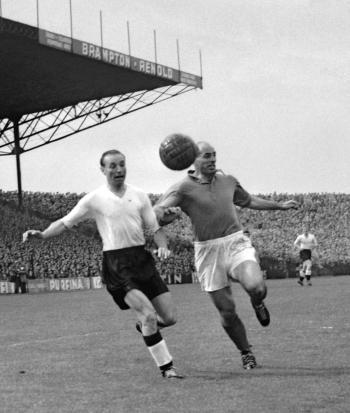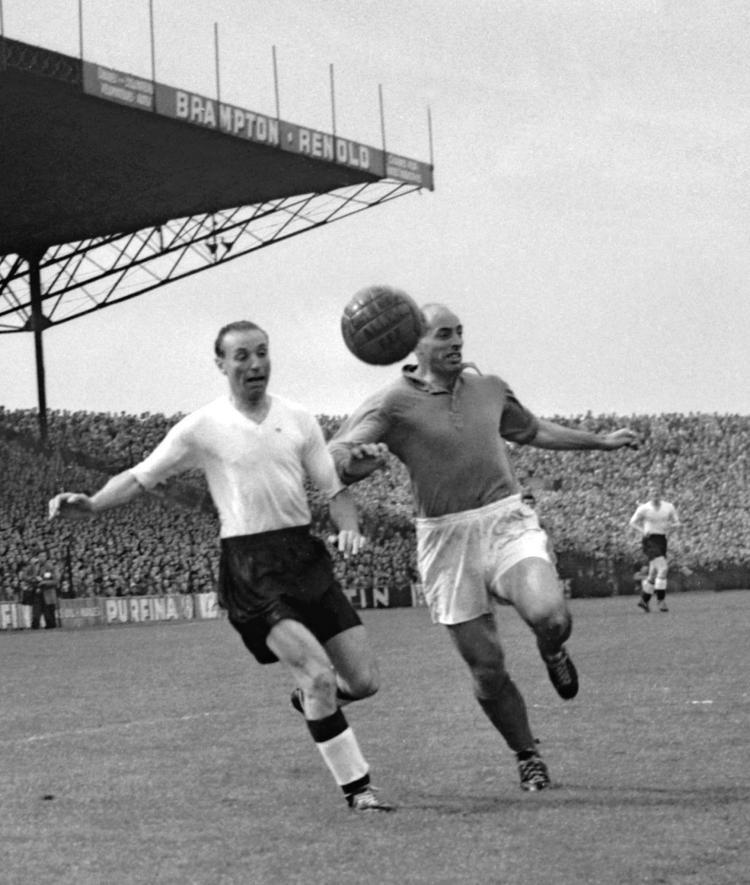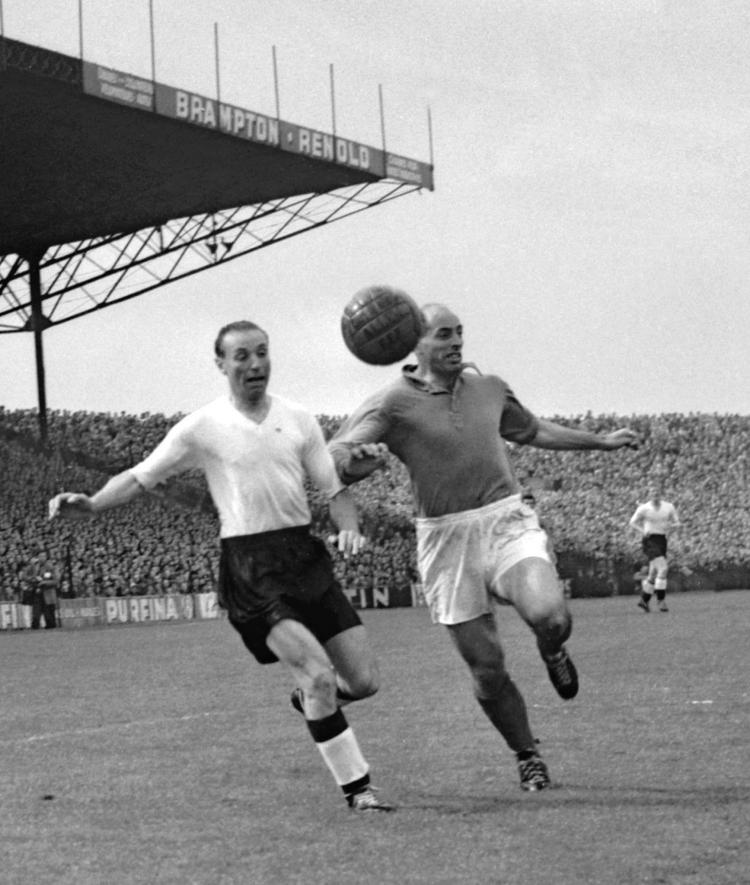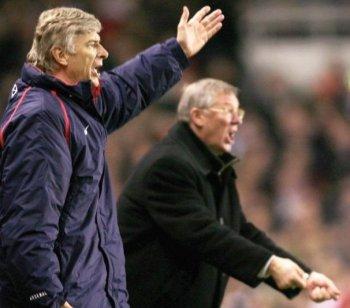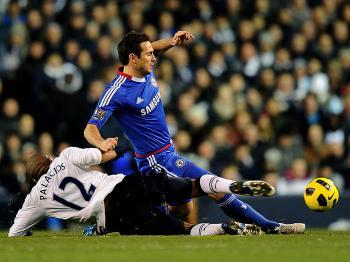When you see them you know right away here is one of a kind and how.
Nat Lofthouse, who reigned terror in front of goal would stretch his great frame and embrace and infuse the crowd with exciting wonder at his center forward authority, commanding thrusting play and dynamism.
A man who quarried coal black-faced from the bowels of the Earth, Lofthouse was one of those northern “toughies” with a sweet touch of the ball. With the ball at his feet there would be thunder in the air.
“There is English football. There are England footballers. And Nat Lofthouse is, perhaps, in our time the most English of them all,” wrote Dr. Percy Young in his history of Bolton Wanderers.
Bolton announced Lofthouse, who had been awarded the OBE for services to the game, had died peacefully in his sleep on Jan. 15 at his nursing home aged 85.
Nat Lofthouse was immersed in days of great fun traveling on the same train as the fans, sneaking fish and chips before the game, playing on poor pitches amid the eye-watering smell and burn of liniment, and the trainer’s magical smack on the backside arising from injury to get up and go.
The heavyweight ball, the roughly hewn boots, which when new, had to be bought a size smaller. Then they’d sit patiently soaking in a basin of water to finally mould them to the feet for a firm close fit. Well plied and covered in dobbin grease to make them soft and waterproof, these were essentially the tools of the trade.
There was something so down right healthy and clean about the game and how it was played before a knowledgeable bunch of wannabes. Playing out every move so thoroughly involved not simply as spectators, but as living participants inciting and daring the artists to strike them dumb with amazement and banish the black Mondays.
No TVs, no computers, only sport exhilarating, uplifting sport and your heroes sat right beside you.
This columnist remembers well being aboard a tram [streetcar] heading into town one Saturday evening following an international match that afternoon.
The hero of the day came aboard looking superbly fit and gushing with the pleasures of his path of life, exchanging fun and laughter enjoying every moment of the witty banter laced with fond criticism.
Who on earth could not feel part of this hero’s world witnessing youths young dreams fulfilled with such intimacy and camaraderie? The community spirit was alive and thriving with fun and fellowship. Yes!
This and more is what Nat Lofthouse represented when he graced the game with his invigorating presence and prolific goal-scoring ability. Lofthouse made more than 450 appearances for Bolton, scoring 255 goals for the club between 1946 and 1960. He also represented England 33 times and scored 30 goals, classed among the top 10 of his fellow professionals at that time.
Bolton Chairman Phil Gartside was quoted in the Telegraph, “Nat undoubtedly is a Bolton Wanderers legend. He was a one-club man and our football club meant as much to him as he did to us. We will miss him but we will celebrate his life, his legacy, and great times he brought to Bolton Wanderers.”
Nat Lofthouse, who reigned terror in front of goal would stretch his great frame and embrace and infuse the crowd with exciting wonder at his center forward authority, commanding thrusting play and dynamism.
A man who quarried coal black-faced from the bowels of the Earth, Lofthouse was one of those northern “toughies” with a sweet touch of the ball. With the ball at his feet there would be thunder in the air.
“There is English football. There are England footballers. And Nat Lofthouse is, perhaps, in our time the most English of them all,” wrote Dr. Percy Young in his history of Bolton Wanderers.
Bolton announced Lofthouse, who had been awarded the OBE for services to the game, had died peacefully in his sleep on Jan. 15 at his nursing home aged 85.
Nat Lofthouse was immersed in days of great fun traveling on the same train as the fans, sneaking fish and chips before the game, playing on poor pitches amid the eye-watering smell and burn of liniment, and the trainer’s magical smack on the backside arising from injury to get up and go.
The heavyweight ball, the roughly hewn boots, which when new, had to be bought a size smaller. Then they’d sit patiently soaking in a basin of water to finally mould them to the feet for a firm close fit. Well plied and covered in dobbin grease to make them soft and waterproof, these were essentially the tools of the trade.
There was something so down right healthy and clean about the game and how it was played before a knowledgeable bunch of wannabes. Playing out every move so thoroughly involved not simply as spectators, but as living participants inciting and daring the artists to strike them dumb with amazement and banish the black Mondays.
Era of the Past
In days gone by, the press had to get their runners to arrive early to claim a public telephone box as near to the ground as possible to relay the game in progress to their respective news rooms as there was no telephone hook up in the stands.No TVs, no computers, only sport exhilarating, uplifting sport and your heroes sat right beside you.
This columnist remembers well being aboard a tram [streetcar] heading into town one Saturday evening following an international match that afternoon.
The hero of the day came aboard looking superbly fit and gushing with the pleasures of his path of life, exchanging fun and laughter enjoying every moment of the witty banter laced with fond criticism.
Who on earth could not feel part of this hero’s world witnessing youths young dreams fulfilled with such intimacy and camaraderie? The community spirit was alive and thriving with fun and fellowship. Yes!
This and more is what Nat Lofthouse represented when he graced the game with his invigorating presence and prolific goal-scoring ability. Lofthouse made more than 450 appearances for Bolton, scoring 255 goals for the club between 1946 and 1960. He also represented England 33 times and scored 30 goals, classed among the top 10 of his fellow professionals at that time.
Bolton Chairman Phil Gartside was quoted in the Telegraph, “Nat undoubtedly is a Bolton Wanderers legend. He was a one-club man and our football club meant as much to him as he did to us. We will miss him but we will celebrate his life, his legacy, and great times he brought to Bolton Wanderers.”
